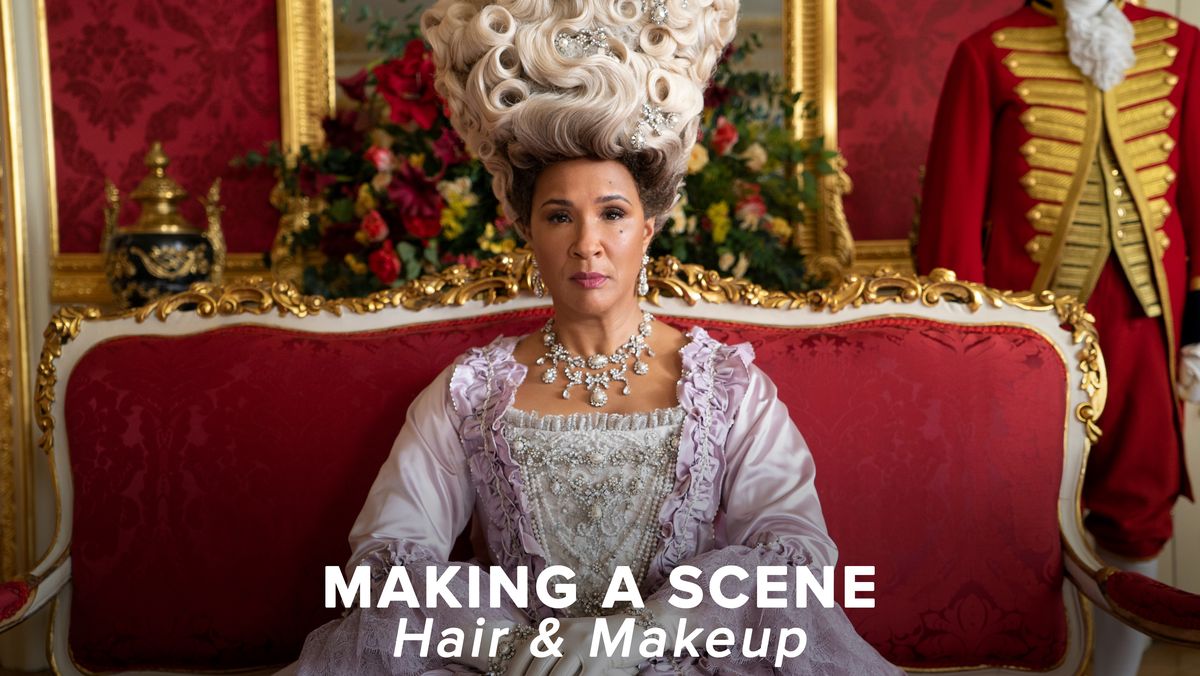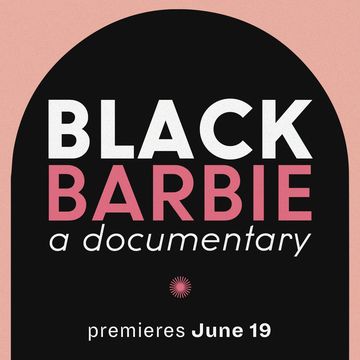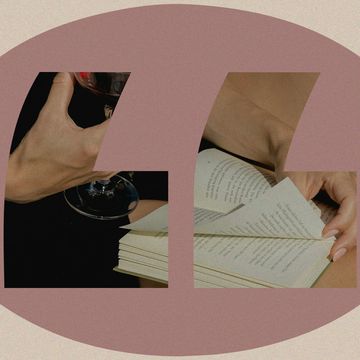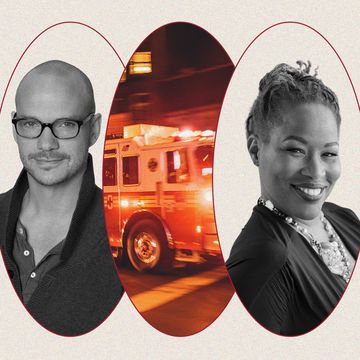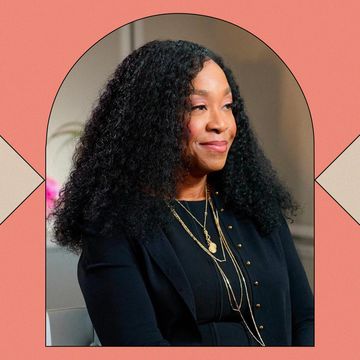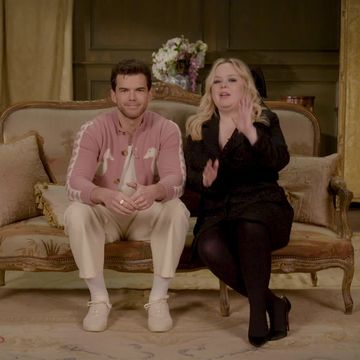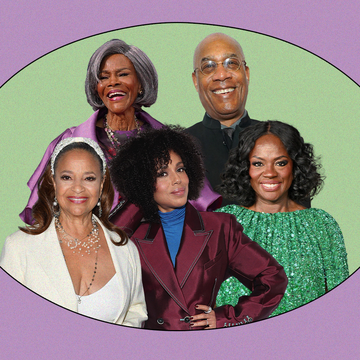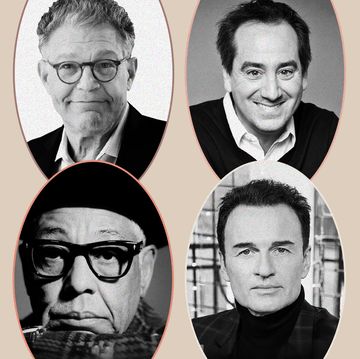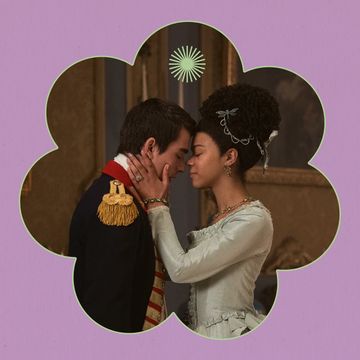Several years ago, during the daily meeting at my then-journalism job, my male boss decreed that a story he’d been pitched about an issue affecting women wasn’t actually a story worth covering. I and the other female team members I worked with knew that whenever we had a pitch about what some would call "women’s issues," we had to come to its defense with more supporting evidence than usual. I watched as one of my female colleagues challenged his dismissal with facts — I mean, she broke down in exquisite detail exactly why the story actually was a story and why it was important. It didn’t matter. He shrugged and doubled down on his rejection.
I thought about that moment while reading up on the life of certified journalism badass Connie Chung. On June 1, 1993 — 25 years ago today — Chung sat down next to Dan Rather and signed on as a co-anchor at "CBS Evening News," making her the first woman to anchor a national nightly news broadcast on that network.
After Barbara Walters, who landed the nightly anchoring job at ABC in 1976, Chung was only the second woman hired to anchor the national evening news — and she was the first-ever Asian American to do so. Has Connie Chung sat in meetings and had her ideas dismissed? Listen, you already know.
That Chung, now 71 and still as fabulous as ever, experienced racism, sexism, and sexual harassment while doing her job is undeniable. In 2011 Chung told NPR’s "All Things Considered" that when she started working in TV journalism in 1969, she was young, inexperienced, a woman, and Chinese, so "I never knew when people were giving me a hard time — which reason it was." Any confusion she had got cleared up right quick when her colleagues said things like, "You slant the news."
Chung clearly comes from the "can’t stop, won’t stop" side of town, though, which is why she worked her way up through the business, covering everything from the political to the personal. She's so skilled at interviewing people, and so relentless in her pursuit of a story, that she was the first journalist that Magic Johnson agreed to speak with in a primetime interview after his 1991 announcement that he was HIV-positive. I was in college at the time, and it felt like my whole dorm was gathered around a television to watch. No wonder Chung went on to win a Peabody and multiple Emmy awards.
Chung was born in Washington, D.C. in 1946 — her parents had immigrated from China the year before. She’s said in multiple interviews over the years that her goal from a young age was to be Walter Cronkite. "There was nobody who looked like me who was out there, so that’s why I wanted to be Walter Cronkite," Chung said in a mini-documentary released in May for Asian Pacific American Heritage Month. "CBS News was getting heavy pressure to hire women," said Chung of her rise at the network. "Once I got into the job, the men really wanted to put the women through a hazing period: ‘You’re stupid. You don’t know what you’re doing.’"
And she didn't just experience name-calling. During an appearance in February on "Watch What Happens Live" with her husband and fellow journalist Maury Povich, Chung joked that "anybody who sexually harassed me is dead." Host Andy Cohen followed up by explicitly asking Chung if she’d been sexually harassed at work. Her reply: "Every day. I mean, a lot — especially when I started out."
Chung didn't last long co-anchoring the news with Dan Rather. In 1995, after then-Speaker of the House Newt Gingrich complained that Chung had been "unprofessional and disreputable" with his mother, Kathleen Gingrich, during an interview for "Eye to Eye With Connie Chung," and amid reported tension with Rather, Chung was demoted from her job as co-anchor. CBS executives denied that sexism played a role in their decision. "I don't know what their specific reasons are for offering me a demotion," Chung told the Los Angeles Times. "What I do believe is that in 1995, the only woman on one of the three major network news programs should not accept any second-class status."
Setbacks like these might crush some, but not Connie Chung. She's since moved around to other networks, news shows, and television specials, and gone on to be a fellow at the John F. Kennedy School of Government at Harvard University. And she still doesn't shy away from telling the truth about prejudice in newsrooms. During the "All Things Considered" interview, Chung was asked why there are still so few Asian American news anchors. "It's the 'you can only have one Chinese cheerleader on the squad' syndrome," she said. "You can have one Chinese person — or one Asian — one black, one Hispanic person." Why are things this way? "The cavemen are still in charge at the networks. They're all white males," she added, "and you can't get away from that."
In the mini-doc she was a part of last month, Chung also said something that explains why changing this is so crucial: "A lot of people who are Asian and have gone into other professions besides journalism have said to me, 'I would not have thought that I could do this unless I had seen you on television doing the news.'"
So while we're honoring Chung today and remembering all she's accomplished over the years, let's not forget to keep pressing for newsroom diversity. Who is telling the story — and who decides which stories get told — matters. And having someone on screen every night who looks like you, who serves as a mirror to your dreams and goals, is valuable beyond measure.
Get Shondaland directly in your inbox: Subscribe Today

